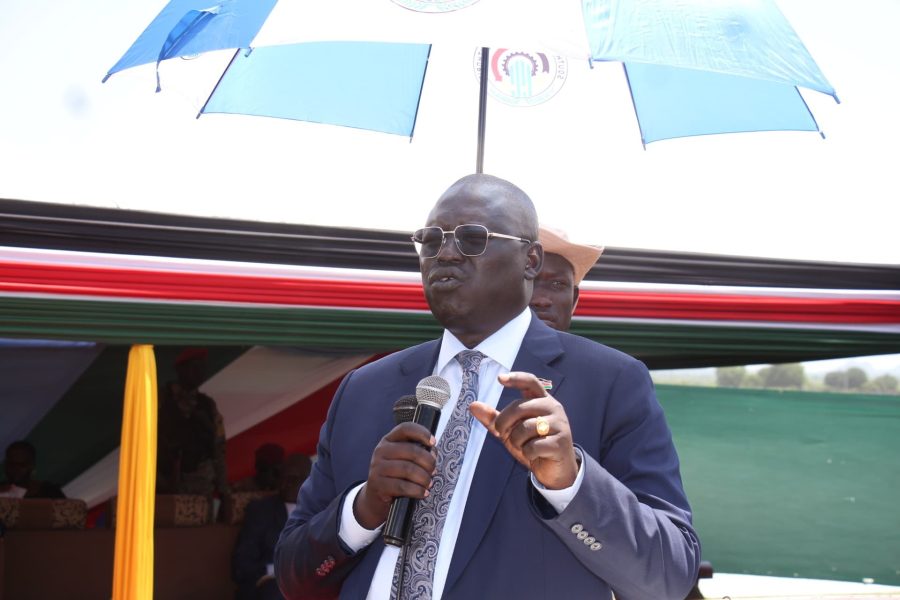
In a move to address the country’s economic downturn, the government is shifting its focus in collecting non-oil revenues, with officials now intensifying campaigns for citizens and businesses to pay their taxes into the government treasury.
Speaking at the handover of Nestiu roadside parking customs point on Thursday, Commissioner General of South Sudan Revenue Authority (SSRA) Simon Akuei Deng encouraged business owners, importers, transporters, and government officials to pay their taxes to support economic viability and national development.
He termed tax payment as a patriotic duty essential for national economic survival and a move away from heavy dependence on unreliable oil revenues.
The Commissioner General stated paying taxes will support the country’s economic viability, urging citizen to view tax payment with the same gravity as the struggle for independence.
“It is therefore incumbent upon all of us to take issues of remitting our taxes to the government as seriously as the way we fought for independence. Because of economic viability, economic liberation comes from us. We have to pay our business profit tax as companies, we have to pay customs duties as importers and transporters, and we have to pay our PIT as people who are working within the government,” Deng said.
This tax, Deng explained, are critical for the government to provide essential public services.
“The same taxes are used to pay our salaries, they are used to pay for education systems, they are used to pay for health care, and they are used to pay for so many other services that are needed in the nation. And to be a sovereign nation, our citizens, including myself, must fulfill their responsibilities,” he added.
The launch of the Nestiu roadside parking customs point is part of a larger approach to strengthen revenue collection infrastructure.
Meanwhile, Dr. Lam Akol Ajawin, the National Minister of Transport, echoed the same sentiment, reiterating that the government relies on taxes and that anyone earning an income must contribute.
“We need to drive this message home, wherever you are, you are serving a bigger pot. What you get, you put there so that it comes to us in terms of service. The government lives on taxes. All over the world, the government survives on taxes.
For us as a government to operate, we must tax anybody who is gaining an income,” Akol said.
The Minister pointed out that South Sudan is facing what is known as the ‘oil curse, which can lead to satisfaction among citizens.
He praised the National Revenue Authority for its efforts to increase non-oil revenue collections.
“I am glad now the revenue authority has raised the percentage of non-oil revenue, which is good because this one is not exhaustible, but the oil is finished. There would come a time when the well would get dry because they are flowing from underground,” he added.
Over-Reliant on Oil
For years, South Sudan’s economy has been almost entirely dependent on oil, which has accounted for over 90% of the country’s revenue.
This over-reliance has left the nation vulnerable to global oil price fluctuations and, more recently, to severe disruptions in production and transportation due to conflicts and infrastructure damage.
The recent shutdown of a major oil pipeline, which is only now resuming operation, due to the conflict in Sudan, has underlined the shakiness of this dependency, contributing to a deepening economic crisis in 2025.
This has led to a significant shortfall in the national budget and has hampered the government’s ability to function and deliver services and pay salaries.

